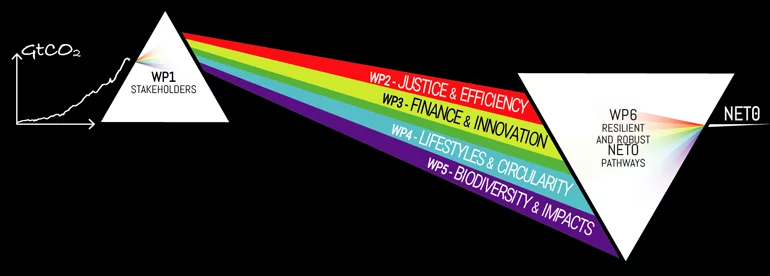The PRISMA project aims to bring Integrated Assessment Models (IAM) to the next level by focusing on four key areas of improvement, namely the representation of distributional justice and efficiency, innovation and finance, climate impacts and land-use implications, and lifestyle change and circularity. In these four key areas we will improve existing large-scale IAMs and sectorial models. Two cross-cutting shared themes across these areas are the improvement of the temporal and spatial resolution of the analysis, and the representation of disruptive and structural change in the economy. The spatial granularity will be increased with a focus on Europe, and the yearly and in particular near term detailed modeling of rapid decarbonization pathways will be analyzed in detail.
The contribution of PSI’s technology assessment group focuses on the area of circularity. We will improve the representation of bulk and special materials – key for the energy transition – in Life Cycle Assessment and develop a method to link LCA, IAM and material flow analysis to be able to quantify material stocks, recycling, and technology substitution in transition pathways towards stringent climate goals. This focus is motivated by the fact that the phase-out of fossil fuel use will result in a massive increase in demand for technologies such as batteries, electrolyzers, solar and wind power plants and that these technologies depend on potentially materials like Lithium, Cobalt, Copper, Manganese, rare earths, etc. Not only the availability of resources as such might represent a bottleneck – mining and refining capacities need to be scaled up and supply chains must be secured. Our work will help to investigate whether any of these elements might represent bottlenecks and limit the speed of the energy transition. An additional element of our work is a regionalized impact assessment of mining and refining activities to provide more reliable estimates of the environmental and human health related impacts.
Project details
Duration: 2023-2026
Funding:
- Swiss State Secretariat for Education, Research and Innovation (SERI)
- European Union’s Horizon Europe research and innovation program under grant agreement No. 101081604
- UK Research and Innovation (UKRI)
Partners:
- Fondazione Centro Euro-Mediterraneosui Cambiamenti Climatici (CMCC)
- Potsdam Institute for Climate Impact Research (PIK)
- International Institute for Applied Systems Analysis (IIASA)
- Ministerie van Infrastructuur en Waterstaat (PBL)
- E3-Modelling
- Bruegel
- Fundacja Warszawski Instytut Studiów Ekonomicznych i Europejskich
- Université de Genève
- ETH Zurich
- University of Oxford
- University of Cambridge




